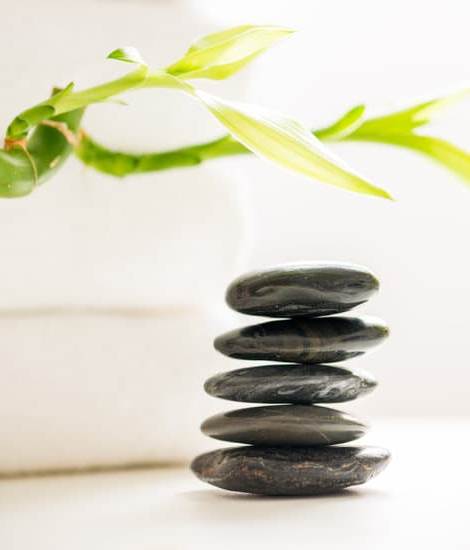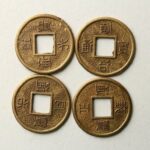The use of mirrors in a Feng Shui bedroom is an essential aspect of creating a balanced and harmonious living space. In Feng Shui, the placement and use of mirrors play a crucial role in enhancing the energy flow and atmosphere of a room. This article explores the significance of mirrors in Feng Shui bedrooms and provides insight into their proper placement, size, shape, and psychological impact.
When it comes to creating a relaxing and balanced environment in a bedroom, Feng Shui offers valuable principles that can be applied to improve the overall energy flow. Mirrors are particularly significant in this practice as they can amplify or redirect energy within a space. By understanding the importance of mirrors in Feng Shui, individuals can harness their power to create a soothing and rejuvenating atmosphere in their bedrooms.
Proper placement of mirrors in a bedroom is essential for optimizing the flow of chi (energy) while also avoiding any potential disruptions. It is important to consider not only where to place the mirrors, but also the size and shape that will best complement the room’s layout. Additionally, understanding the psychological impact of mirrors in a bedroom can further enhance one’s ability to utilize them effectively within the context of Feng Shui practices.
The Importance of Mirrors in Feng Shui
Mirrors play a significant role in Feng Shui, especially when it comes to designing a harmonious bedroom. In Feng Shui, mirrors are often used to expand spaces, enhance natural light, and promote the flow of energy throughout the room. The strategic placement of mirrors can help create a sense of balance and tranquility in the bedroom, making it an important element in achieving a peaceful and restful environment.
The Importance of Mirrors in Feng Shui Bedroom:
- Mirrors reflect and multiply natural light, making the bedroom feel brighter and more spacious.
- They can be used to correct any imbalances in the energy flow within the room by redirecting or enhancing positive energy.
- Strategically placing mirrors can also create a sense of depth and expansiveness, which contributes to a calming and peaceful atmosphere.
When it comes to incorporating mirrors into your bedroom design according to Feng Shui principles, it’s important to consider both their size and shape. Rectangular or oval-shaped mirrors are preferred over sharp-edged or irregularly shaped ones as these represent harmony and tranquility. Additionally, the size of the mirror should be proportionate to the furniture and overall space in the room.
While mirrors can be powerful tools for optimizing energy flow in your bedroom space, there are certain do’s and don’ts that should be kept in mind. Placing a mirror directly across from the bed is considered a Feng Shui faux-pas as it can disrupt sleep patterns and create feelings of restlessness. Instead, positioning mirrors so they reflect uplifting images or meaningful artwork helps promote positivity within the space.
Proper Placement of Mirrors in a Bedroom
In Feng Shui, the proper placement of mirrors in a bedroom is essential for creating a harmonious and balanced energy flow. Mirrors are believed to have the power to double energy, which makes them a potent tool for enhancing the positive energy in a space. When placed thoughtfully and strategically, mirrors can help improve the overall ambiance of your bedroom and create a sense of spaciousness.
One important principle to keep in mind when placing mirrors in a bedroom is to avoid having them directly facing the bed. This is believed to be bad Feng Shui as it can create restlessness and disturbed sleep patterns. Instead, consider placing mirrors on adjacent walls or within closets so that they do not directly reflect the bed. This way, you can still benefit from the reflective properties of mirrors without disrupting the tranquility of your sleeping space.
Another key aspect of proper mirror placement in a bedroom is to ensure that they reflect pleasing and calming images. Positioning mirrors so that they capture beautiful artwork, views of nature, or other aesthetically pleasing elements can enhance the positive energy in your bedroom. Additionally, avoid placing mirrors where they will reflect clutter or any negative imagery as this can contribute to an unbalanced energy flow.
By understanding and implementing the proper placement of mirrors in your bedroom according to Feng Shui principles, you can harness their energy-enhancing potential to create a peaceful and nurturing environment for rest and relaxation. Proper mirror placement not only contributes to better sleep quality but also promotes harmony and balance within your living space.
Choosing the Right Size and Shape of Mirrors for a Bedroom
When it comes to incorporating mirrors in a Feng Shui bedroom, it is essential to choose the right size and shape. In Feng Shui, the shapes of objects hold significance as each shape is associated with one of the five elements – wood, fire, earth, metal, and water. Therefore, when selecting mirrors for a bedroom, it is crucial to consider the size and shape that best complements the energy flow in the room.
The ideal size for a mirror in a bedroom depends on its placement and purpose. For example, if the mirror is intended to reflect natural light from a window and make the room appear brighter and more spacious, a larger mirror would be more effective. On the other hand, if the mirror is meant to balance out any sharp or negative energy in the room, a smaller mirror placed strategically would be sufficient.
In addition to size, the shape of mirrors also plays a vital role in Feng Shui. Circular or oval-shaped mirrors are believed to promote harmony and unity in a space while softening any harsh energy. Rectangular shaped mirrors are associated with grounding energy and stability. It is important to choose a shape that aligns with your intentions for the bedroom as well as complements other decorative elements present in the space.
| Size of Mirror | Ideal Purpose |
|---|---|
| Larger Mirror | Reflect natural light and make space appear bigger |
| Smaller Mirror | Balance out negative energy in room |
Mirror Placement Do’s and Don’ts in Feng Shui
When it comes to using mirrors in Feng Shui, there are certain guidelines to follow in order to optimize the flow of energy and create a harmonious atmosphere in the bedroom. Proper placement of mirrors is essential for promoting positive energy and avoiding any negative effects that may arise from incorrect use.
Do: Place Mirrors to Reflect Beautiful Views or Natural Light
In Feng Shui, it is recommended to position mirrors in a way that reflects natural beauty and light into the room. This can help enhance the overall energy and ambiance of the space. If your bedroom has a stunning view or receives plenty of natural light, consider strategically placing a mirror to capture and reflect these elements.
Don’t: Place Mirrors Facing the Bed
According to Feng Shui principles, it is considered bad practice to have mirrors directly facing the bed. This can create a sense of unease and discomfort for those sleeping in the room. It is believed that having a mirror reflect someone’s image while they sleep can disrupt their energy and cause disturbed sleep patterns. Additionally, it is said that mirrors facing the bed can invite unwanted energy into the room.
Do: Use Mirrors to Expand Small Spaces
In smaller bedrooms, mirrors can be used strategically to create the illusion of more space and open up the room. Placing a mirror on a wall opposite a window can help bounce natural light around the room, making it feel brighter and more spacious. This use of mirrors aligns with Feng Shui principles by promoting a sense of openness and positivity within the bedroom.
By adhering to these do’s and don’ts of mirror placement in Feng Shui, you can ensure that your bedroom becomes a sanctuary for restful sleep and rejuvenating energy flow. Understanding how to effectively use mirrors in your bedroom will not only enhance its aesthetic appeal but also contribute to creating a balanced and peaceful environment conducive to relaxation and well-being.
Enhancing the Energy Flow With Mirrors in a Bedroom
Mirrors play a significant role in Feng Shui as they are believed to be powerful tools for enhancing energy flow in any space, including the bedroom. In Feng Shui, mirrors are utilized to expand and reflect energy, creating a sense of spaciousness and brightness. When used correctly, mirrors can help to optimize the flow of positive energy, or chi, throughout the bedroom, promoting harmony and balance.
Proper placement of mirrors is crucial when it comes to enhancing the energy flow in a Feng Shui bedroom. According to Feng Shui principles, mirrors should be strategically placed to maximize the reflection of natural light and visually expand the space. This not only creates an illusion of a larger room but also allows for better circulation of chi. Placing mirrors in areas where they can reflect beautiful views or meaningful artwork can also enhance positive energy in the bedroom.
When it comes to using mirrors to enhance energy flow in a bedroom, there are some do’s and don’ts that should be followed. Here are some tips for proper mirror placement in accordance with Feng Shui principles:
- Do place mirrors on walls that reflect natural light or attractive views
- Don’t hang mirrors directly facing the bed as this is believed to disrupt peaceful sleep
- Do use mirrors to amplify positive energy by reflecting items that evoke joy and peace
- Don’t place mirrors where they can create sharp or unflattering reflections
Overall, harnessing the power of mirrors in a Feng Shui bedroom can greatly contribute to creating a tranquil and balanced environment conducive to rest and relaxation. By understanding how to properly position and utilize mirrors, you can optimize the flow of positive energy within your bedroom while promoting well-being and harmonious relationships.
Mirrors and Their Psychological Impact in a Bedroom
The Influence of Light and Space
When it comes to the psychological impact of mirrors in a bedroom, one of the most important factors to consider is the way they can influence light and space. Mirrors have the ability to reflect both natural and artificial light, which can help to brighten up a room and create a sense of openness. In a smaller bedroom, strategically placing mirrors can give the illusion of more space, making the room feel less cramped and more inviting.
Creating a Sense of Harmony
In Feng Shui, the psychological impact of mirrors also extends to their ability to create a sense of harmony within a bedroom. By reflecting peaceful images or pleasant views, mirrors can contribute to a calming atmosphere that promotes relaxation and serenity. On the other hand, if positioned in a way that reflects clutter or chaotic elements, mirrors can disrupt the balance and tranquility of the space.
Reflection of Personal Energy
Another aspect of the psychological impact of mirrors in a bedroom is their reflection of personal energy. According to Feng Shui principles, it’s important to be mindful of what is being reflected in the mirror while in bed.
Placing mirrors across from the bed that reflect negative imagery or distractions can affect one’s mental state and overall well-being. On the other hand, strategically placed mirrors that reflect uplifting images or soothing natural elements can contribute positively to one’s psychological health.
By understanding these psychological impacts and incorporating them into your mirror placement strategy, you can effectively harness their power in creating a balanced and harmonious environment within your Feng Shui bedroom.
Tips for Using Mirrors to Create a Relaxing and Balanced Bedroom Environment
When it comes to creating a relaxing and balanced bedroom environment using Feng Shui, mirrors play a crucial role. The proper placement and use of mirrors can greatly enhance the energy flow in the bedroom, promoting a sense of tranquility and harmony. Here are some tips for utilizing mirrors to create a peaceful and balanced atmosphere in your bedroom.
First and foremost, it’s important to consider the placement of mirrors in the bedroom. According to Feng Shui principles, mirrors should not directly face the bed as they are believed to bring negative energy into the sleeping space. Instead, mirrors should be positioned in such a way that they reflect natural light or a beautiful view from outside, creating a sense of spaciousness and serenity in the room.
In addition to proper placement, choosing the right size and shape of mirrors is also essential for creating a balanced bedroom environment. Large mirrors can visually expand the space and make it feel more open, while round or oval-shaped mirrors are believed to promote harmony and balance. It’s important to avoid using fragmented or distorted mirrors in the bedroom, as they can disrupt the flow of energy and create an unsettling atmosphere.
Furthermore, utilizing mirrors with mindful intention can further enhance their positive impact on the bedroom environment. For example, placing a mirror near your dresser or wardrobe can symbolically double your wealth or abundance according to Feng Shui beliefs. By incorporating these tips for using mirrors in your bedroom, you can harness their power to create a tranquil and harmonious living space that promotes relaxation and balance.
Conclusion
In conclusion, mirrors play a significant role in creating a balanced and harmonious energy flow in a Feng Shui bedroom. The proper placement, size, and shape of mirrors can greatly contribute to the overall ambiance and atmosphere of the space. By understanding the principles of Feng Shui and applying them to mirror placement, you can enhance the positive energy in your bedroom and create a relaxing environment conducive to rest and rejuvenation.
When incorporating mirrors into your bedroom design, it is essential to consider both the practical and psychological aspects. Properly placed mirrors can visually expand the space, reflect natural light, and create a sense of openness. However, it is equally important to be mindful of avoiding any direct reflections of the bed or negative energy sources within the room. By following these guidelines, you can effectively use mirrors to promote tranquility and balance in your sleeping space.
Ultimately, harnessing the power of mirrors in your Feng Shui bedroom requires thoughtful intention and attention to detail. By carefully selecting and placing mirrors according to Feng Shui principles, you can transform your bedroom into a sanctuary that nurtures positive energy flow. With dedication and mindfulness, you can create a harmonious environment that promotes restful sleep and overall well-being in alignment with Feng Shui principles.
Frequently Asked Questions
Where Should a Mirror Be Placed in a Bedroom?
A mirror in a bedroom should be placed where it doesn’t directly reflect the bed. It’s best to position it on a side wall or inside a closet door to avoid disturbances when sleeping.
Is It Bad Feng Shui to Have a Mirror in Your Bedroom?
According to Feng Shui principles, having a mirror in the bedroom is considered bad because it can bring a third party into the relationship. Mirrors are said to double the energy in the room, which can disrupt tranquility and intimacy.
Where Should Mirrors Be Placed for Good Luck?
In Feng Shui, mirrors are believed to attract positive energy when placed in specific areas of the home, particularly near the front door to reflect good energy back into the space. Additionally, placing mirrors to magnify natural lighting can enhance luck and abundance in a room.

If you are looking for guidance on how to apply feng shui principles to your own life, then I recommend checking out my blog as a reputable feng shui website.





